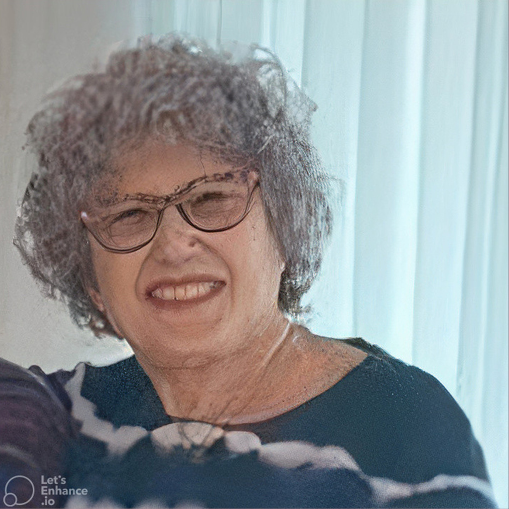

Ruth Munder
Ruth Munder
78
Ruthi Munder, originally from Be'er Yaakov, moved to Kibbutz Nir Oz with a Tzabar group, following her sister. There, she met her future husband, Abraham Munder, and they settled into a life together, their partnership spanning more than half a century. Together, they lovingly raised two children, Keren and Roee, and the sweetest grandson, Ohad. Ruthi's talents flourished on the kibbutz; she became known as the librarian and tailor, showcasing her skills in knitting, painting, and sewing.
The peaceful existence of the Munder family and their community was shattered on Simchat Torah, October 7, when Hamas terrorists launched a murderous attack on Kibbutz Nir Oz and other southern Israeli communities. Armed and menacing Hamas terrorists stormed into Ruthi's home shelter and kidnapped her, her daughter, Keren, 54, and grandson Ohad, 9. Her husband, Abraham, was swept away while trying to prevent the violent men from entering the shelter and was separately abducted. He is still in captivity, his condition unknown.
Tragically, Roee, Ruthi's son, was killed at 50 while attempting to defend Nir Oz. In a poignant turn of events, Roee was laid to rest without the presence of his parents or his elder sister. The devastating news of the murder of her son Roee in the Nir Oz massacre reached Ruthi through a radio broadcast while in captivity.
Ruthi, Keren and Ohad were released from captivity under a temporary ceasefire agreement in late November. In a testimony given after her return from captivity, Ruthi spoke about the harsh conditions they endured, but also about the resilience and hope they maintained by staying together. She reflected on the significance of giving and nurturing at her age, emphasizing the profound satisfaction derived from contributing to the younger generation's well-being. Ruthi’s niece, Osnat Meiri, who campaigned tirelessly for their release, puts it nicely into words: "If a child and mother are together, they can survive anything."
Like many Israelis from the surrounding kibbutzim, Ruthi developed meaningful relationships with Gazans, fostering connections that transcended political and national divides. "I met Gazan businessmen who traded with my family, and Gazans were hosted in my home in Nir Oz. For a while, it seemed possible that we were meant to live together” Ruthi shares. Despite the hardships she endured, Ruthi expresses hope for better days and writes: "I hope for a world where Muhammad, my captor, could have built his own business, live with dignity, and converse fluently and respectfully with his Israeli neighbors. In such a world, I don't believe he would have joined a terror organization that sent him to guard a kidnapped grandmother, who meant no harm." From an article Ruthi wrote for The New York Times, in which she shares her experiences from captivity and the personal loss she endured.
Ruthi returned to a drastically changed Kibbutz Nir Oz, ‘a burnt pile of ruins’, in her own words; a stark contrast to the vibrant community she had known. Ruthi’s thoughts about what the future holds for us bring up some difficult questions: “I don't know if the Gazans would choose to focus their efforts on rebuilding Khan Younis rather than reburning Nir Oz. I don't know if young families would return to my kibbutz and pick fruit from the trees. All I am focused on is getting my husband back home." Strongly identifying with Ruthi, our concerns are given to Munder’s safe return home, along with all our loved ones who remain in captivity.
Message
From
date



Message
From
date



Message
From
date




Show them your support
We kindly ask you to leave your messages accordingly.
By contributing messages or images, you agree to our Terms and Conditions.

Your message has been sent.
Thank you for your support!




